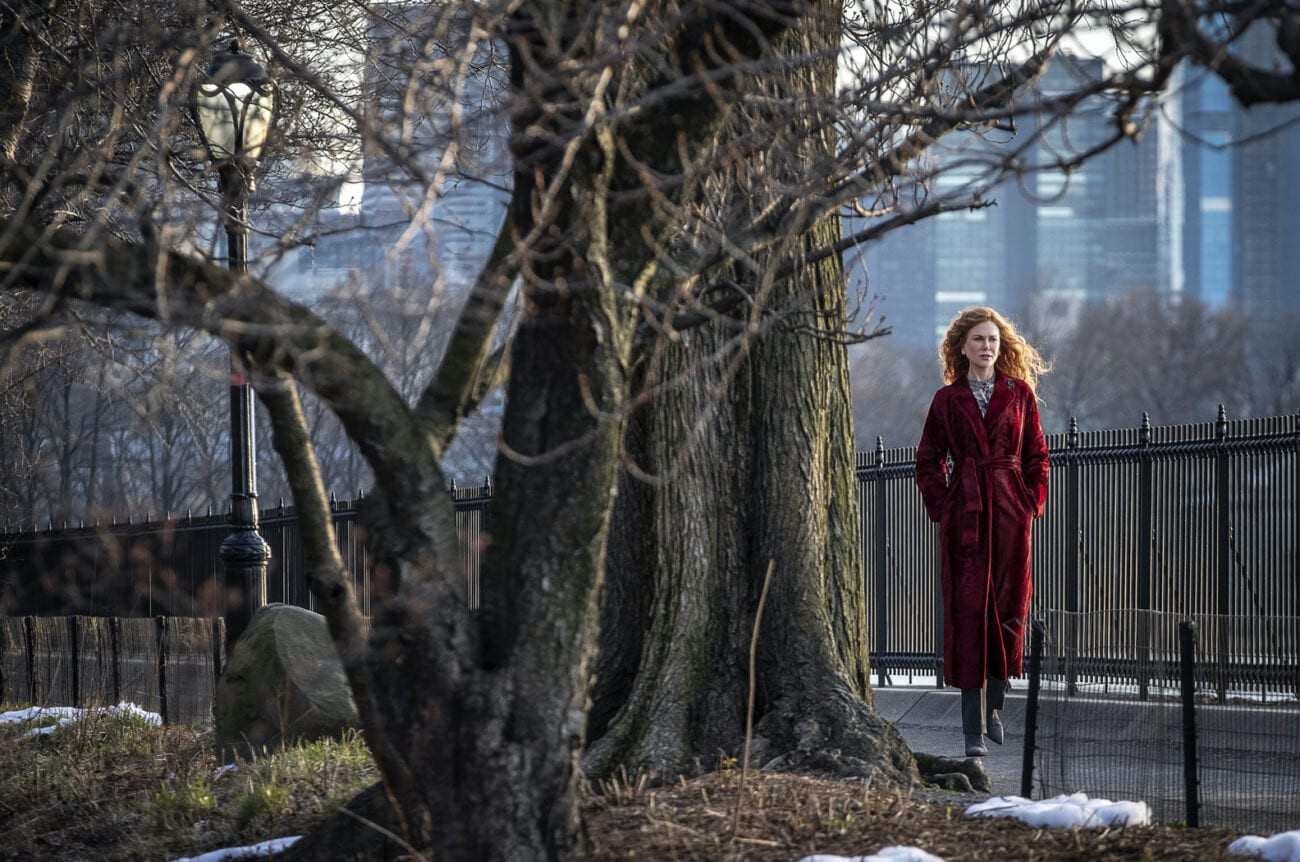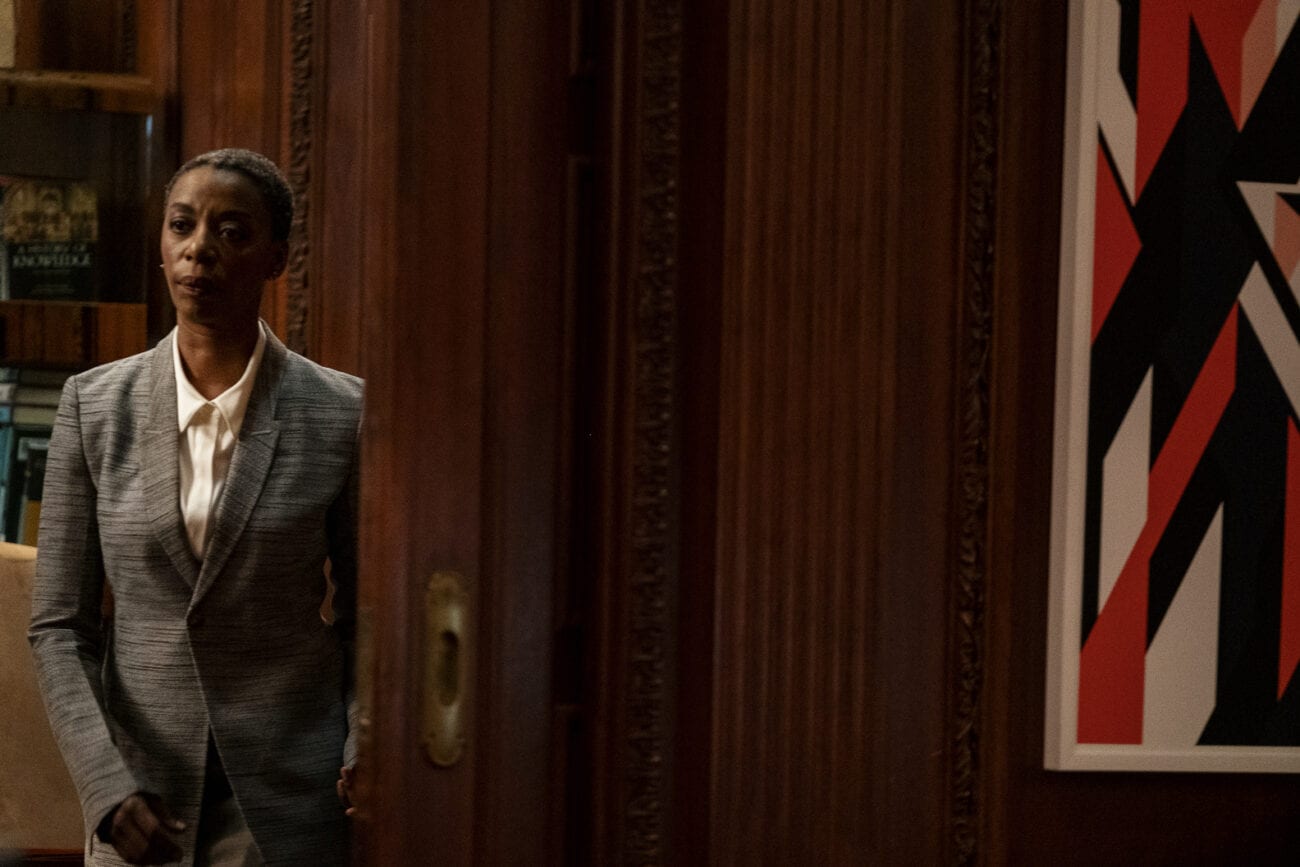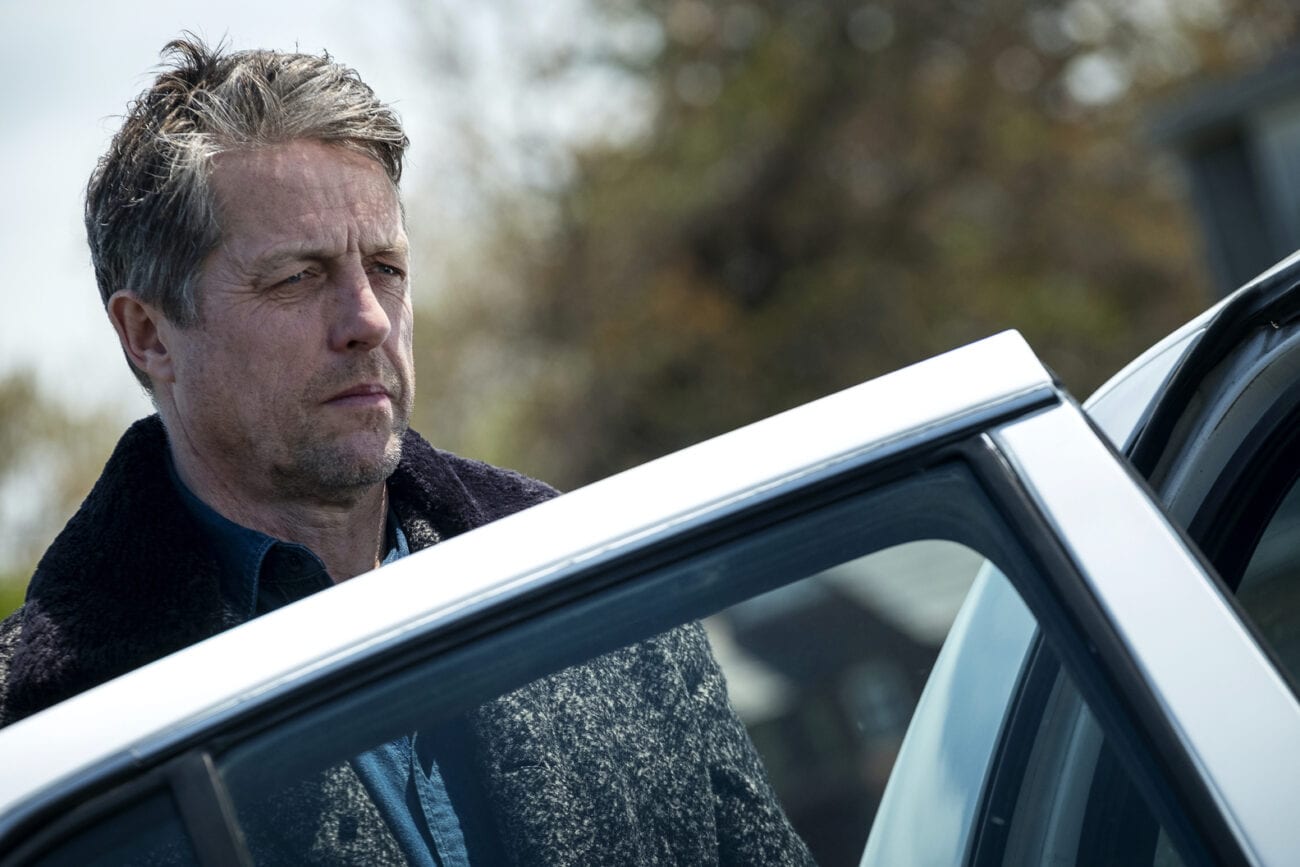Through the first two episodes of The Undoing, I have put a certain emphasis on the extent to which we have been proceeding through Grace’s perspective. This changes meaningfully, however, in Episode 3. For one thing, “Do No Harm” gives us scenes of Jonathan in prison. But more deeply, Episode 3 ends with the shock that Grace is on the surveillance footage the police have been looking at from the corner near Elena’s studio.
Now, I am not positive exactly where the Frasers’ apartment is on the Upper East Side. Nor am I sure where exactly to locate the scene of Elena’s death. Given the proximity of the UES with East Harlem, it seems reasonable to think that Grace could indeed have been out for a walk, but would she have walked to Harlem? I somewhat doubt it. This is, of course, presuming that this is where Elena’s studio was located, based on her saying in Episode 1 that she lived in Harlem when she turned down Grace’s offer of a ride home from the fundraiser. But overall, unfortunately, there is just not enough information that has been given by The Undoing at this point for me to feel like I can make solid inferences on the basis of geography. I will say, however, that the thought of a woman from the Upper East Side like Grace taking a random nighttime walk into Harlem does not seem very plausible.
Detectives Mendoza (Edgar Ramírez) and O’Rourke (Michael Devine) strike me as rightly suspicious of Grace on the basis of this footage. And as we are broken out of Grace’s perspective in Episode 3, I am suspicious of her, as well. After all, we were “with her” the night in question, but we did not see this walk occur. What we did see, however, was a moment from her conversation with Elena in the locker room that was not in the original scene we were presented with, which perhaps should have already been a clue that as much as things were being shown from Grace’s point of view, we have been all along dealing with an unreliable narrator.
It is not the truth of events, in other words, that The Undoing showed us in Episodes 1 and 2 so much as the version of events tied up with Grace’s conception of reality, or her life-world. And insofar as this narrative is one about that very lebenswelt coming undone, it should perhaps be no surprise that Episode 3 moves to break us from it.

The overall arc of The Undoing Episode 3 could be interpreted as a move on Grace’s part towards Jonathan’s side, but I think that this would be off to the extent that the side that Grace remains on is her own. It is not so much that she doesn’t believe that Jonathan is guilty from a rational point of view—she doesn’t seem to truly be questioning what was going on with that whole fake trip to Cleveland thing, for example—it is that she cannot bring herself to believe it because of what it would do to her own life, and her son’s. As she tells Franklin (who confesses in Episode 3 to giving Jonathan $500K for an as yet unexplained purpose), her husband can’t be a monster, not because the facts point to his innocence but because she simply could not accept that reality.
In one regard, it is easy enough to empathize with her on this. Henry comes to her room crying, for example, saying that she believes Jonathan did it in that way that is just in between a question and a statement of fact. So of course she denies it. Perhaps that is her first moment of true denial, but from there she is off down the path.
If she believed Jonathan to be guilty, Fernando (Ismael Cruz Cordova) would be a good compatriot. If Jonathan murdered Elena, after all, both she and Fernando would be his victims, with both their lives destroyed through this heinous act. So there is a moment in Episode 3 where Grace is presented with an alternate path, one where she blames the man who has deceived her (and defrauded her father) for the harm he has done and turns against him.
But instead, she perceives Fernando as a threat. And he is. He is a threat to the world Grace has built for herself, which she has now decided to cling to in spite of everything that she knows Jonathan has done. It’s one thing to hold the question of his guilt open, but Grace goes further, hiring Haley Fitzgerald (Noma Dumezweni) to represent Jonathan even as she insists that she cannot make him innocent. Her job is to create muck. So let’s muck up the wheels of justice.
So as I watched Grace move more and more in the direction of believing that Jonathan didn’t do it—or at least acting as such—I found myself thinking more and more that he did, and that this is the story of a privileged woman who will embrace a delusion in order to avoid losing that privilege and a privileged man who will get away with murder because of it. If the first act was the undoing of their life through the crime, the second seems likely to be the undoing of the crime through the muck that Haley Fitzgerald creates.

Meaning that she is wrong, Ms. Fitzgerald, when she says that she can’t undo things. She cannot undo the murder, true, but in the world Grace and Jonathan inhabit, everything is surface. The appearance of a crime may be as bad as a crime itself, but doesn’t this imply that the converse also holds? The appearance of exoneration will be just as meaningful as the real thing?
If the Frasers can go on with their life at the end of the day, won’t they? Is Henry right that they will never be a family again? Given the psychological contortions that Grace goes through in Episode 3, motivated precisely by a desire to maintain her husband’s innocence for the sake of their son, I find it increasingly likely that she will forgive Jonathan after he’s found not guilty at trial, if I can presume for a moment that this is where we’re headed.
I don’t think that Grace was directly involved in Elena’s murder, aforementioned surveillance footage aside, but by the end of Episode 3 of The Undoing, I did get to thinking that she is guilty. She is guilty because she puts her own interests above those of justice and turns her back on a pursuit of truth. So she is not the hero of this story, even if she is the protagonist. The heroes, if there are any in The Undoing, are Detectives Mendoza and O’Rourke, who only seem abrasive insofar as we perceive them through Grace’s point of view. They threaten her reality, but they should because her reality is a delusion.
Of course, I could be wrong and we might find out that someone else killed Elena. Perhaps it was Fernando and the cops were wrong to look past him, even though Grace’s attempt to cast aspersions upon him strikes me as groundless and likely based on her implicit biases when it comes to race and class. Perhaps it was Franklin, for reasons out of the left field that we will learn later and that don’t directly relate to him being played by Donald Sutherland. Or it could be someone else.

But the fact is that after three episodes, everything points at Jonathan. He lost his job over this woman, and her infant daughter is his. By his own admission, he went to see her the night she died, and then he disappeared, leaving his phone behind. But that’s not the worst bit. The worst bit is the question Grace has refused to explore and which I’m not sure our detective friends even know about—that he planned to be away from his family to “go to Cleveland” before the murder occurred. Why?
The title of Episode 3—“Do No Harm”—is a clear reference to the Hippocratic Oath, but it’s something I think we ought not to interpret in relation to Jonathan’s career as a doctor so much as in relation to Grace’s actions over the course of the hour. Do no harm to the façade that forms the life of the Frasers on the Upper East Side. Do no harm to their status and ability to maintain it as a family. It is Grace who will first do no harm to Jonathan’s case, which she moves to take clinically, like an illness to be treated.
She is all too ready to deploy her psychological training to impute mental illness to Elena and attempt to sow suspicion of Fernando, but it is not because she is right but because she is threatened. Of course, she could also be right. We’ll have to come back for the last three episodes of The Undoing to find out.

